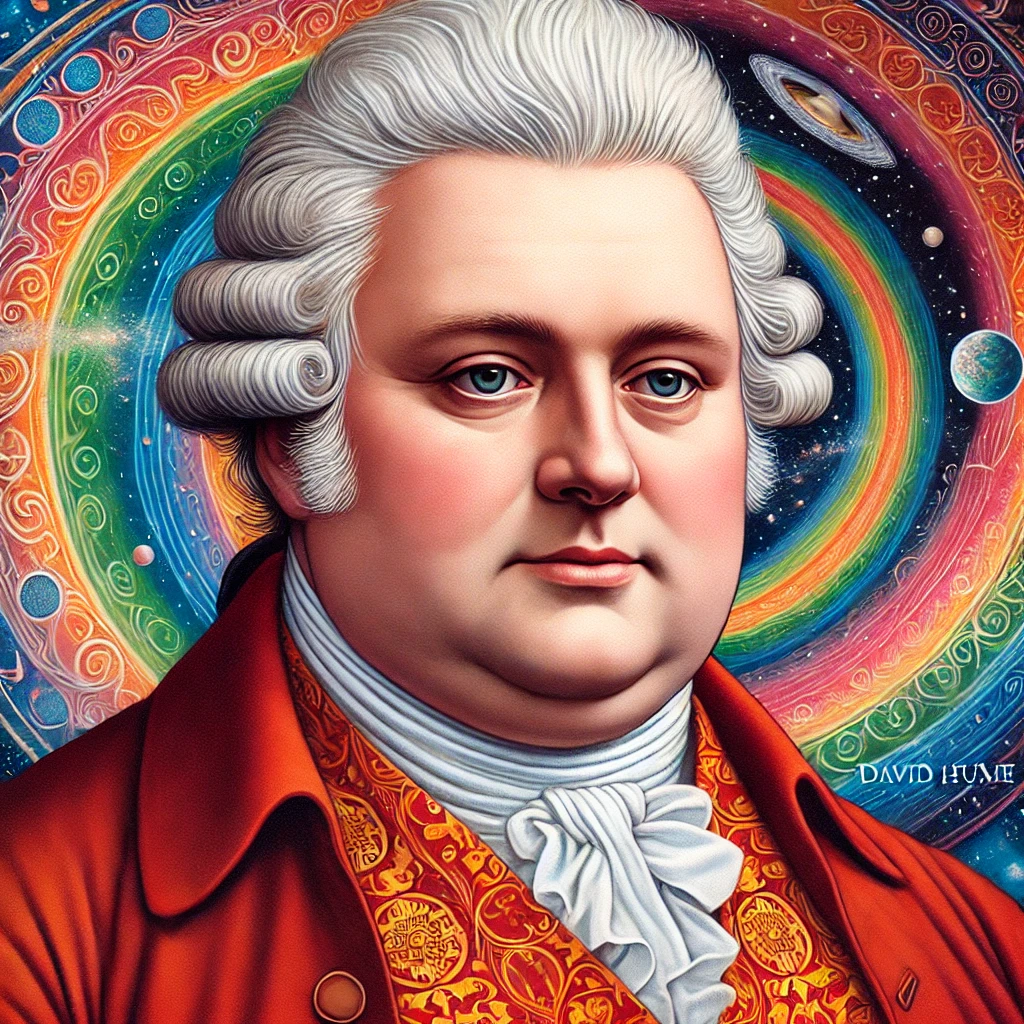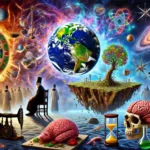Skepticism

Place of Origin: Ancient Greece
Century of Origin: 4th Century BCE
Associated Philosophers:
Overview of Skepticism
Skepticism is a philosophical approach that emphasizes the need for doubt and critical thinking. Skeptics believe that most of the things we take for granted as “true” may not be as certain as we think. This philosophy encourages questioning the validity of knowledge claims, including the reliability of the senses, scientific theories, and even philosophical systems themselves. A Skeptic’s goal is not necessarily to reject all beliefs but to suspend judgment and avoid accepting things as true without sufficient evidence. This tradition dates back to ancient Greece and has been influential in shaping modern critical thinking.
In metaphysics, Skeptics question the nature of reality. They ask whether we can truly know if anything exists beyond our own perceptions. For example, Skeptics might doubt whether the external world exists independently of our senses or if it’s simply an illusion. Skeptics like Pyrrho questioned whether we could ever grasp the true nature of reality, suggesting that since all perceptions could be flawed, it’s better to suspend judgment on whether things exist as we perceive them.
Epistemology is a key focus in Skepticism because it’s the study of knowledge—what we know and how we know it. Skeptics challenge the idea that humans can achieve certain knowledge. They argue that for any belief, there could be reasons to doubt it. For example, the famous Skeptic David Hume questioned causality, suggesting that just because one event follows another doesn’t necessarily mean they are causally linked (e.g., just because the sun has risen every day doesn’t guarantee it will rise tomorrow). Skeptics also critique the idea that our senses give us reliable information, since senses can be easily deceived.
In ethics, Skepticism doesn’t deny that there are moral principles but encourages critical thinking about their foundations. Skeptics might ask, “How do we really know what is morally right or wrong?” They often point out that ethical beliefs vary widely across cultures and that it’s difficult to prove that any one set of morals is absolutely true. Ancient Skeptics like Sextus Empiricus argued that by suspending judgment on moral issues, one can achieve a state of calmness, or *ataraxia*, because we are no longer troubled by trying to decide what is “right” or “wrong.”
Logic is a fundamental tool in Skepticism. Skeptics use logical reasoning to uncover contradictions or flaws in arguments that claim to lead to certainty. However, Skeptics also question whether logic itself can always lead us to truth. For instance, just because something is logically sound doesn’t mean it reflects reality. They point to paradoxes, such as Zeno’s Paradox, to illustrate that logic can sometimes lead us to conclusions that seem counterintuitive or impossible. Skeptics thus view logic as useful but not foolproof.
In aesthetics, Skepticism questions whether beauty can be objectively defined. Skeptics argue that beauty is subjective and varies greatly between individuals and cultures. For example, what one person finds beautiful, another might find unattractive. This leads Skeptics to question whether beauty exists independently of human perception, or if it’s purely a mental construct.
The methodology of Skepticism involves rigorous questioning and *epoche*, or suspending judgment. Skeptics often engage in "dialectical reasoning," where they take opposing arguments and analyze them to see if they hold up to scrutiny. This method isn’t about finding definitive answers but about revealing the uncertainties and limitations of both sides of an argument. Skeptics believe this method promotes open-mindedness and intellectual humility.
From a Skeptical perspective, humans are seen as limited beings whose knowledge is inherently flawed due to their reliance on imperfect senses and cognitive biases. Skeptics argue that humans have a natural tendency to believe in things based on habit, tradition, or social influence rather than evidence. This view challenges the idea that humans are naturally rational and capable of fully understanding the world, emphasizing instead that our perceptions and beliefs should be treated with caution.
In political philosophy, Skepticism encourages citizens to question authority, laws, and social structures. Skeptics are wary of absolute claims made by political leaders or governments, arguing that no one can have complete knowledge about what’s best for society. They caution against blindly following political ideologies or leaders, encouraging a more critical and reflective approach to governance.
Skepticism has been a central part of Western philosophy since ancient Greece. Pyrrho, often considered the father of Skepticism, believed that we cannot know anything for certain, and thus should suspend judgment on all matters. Later, thinkers like Sextus Empiricus formalized Skepticism into a structured philosophical system. During the Enlightenment, David Hume revived Skepticism by challenging religious and scientific certainties, influencing modern scientific thinking.
Key themes in Skepticism include the limits of human knowledge, the unreliability of sensory experience, and the fallibility of human reasoning. Skeptics believe that instead of searching for absolute truths, we should embrace uncertainty and remain open to different possibilities. Another important theme is that doubt can lead to intellectual freedom by freeing people from dogmatic beliefs and rigid thinking.
Famous Skeptical philosophers include Pyrrho, who argued that we should suspend judgment because we can never be sure of anything. Other important figures include David Hume, who questioned causality and the certainty of knowledge, and René Descartes, who doubted everything until he concluded that his ability to doubt proved that he existed ("I think, therefore I am").





